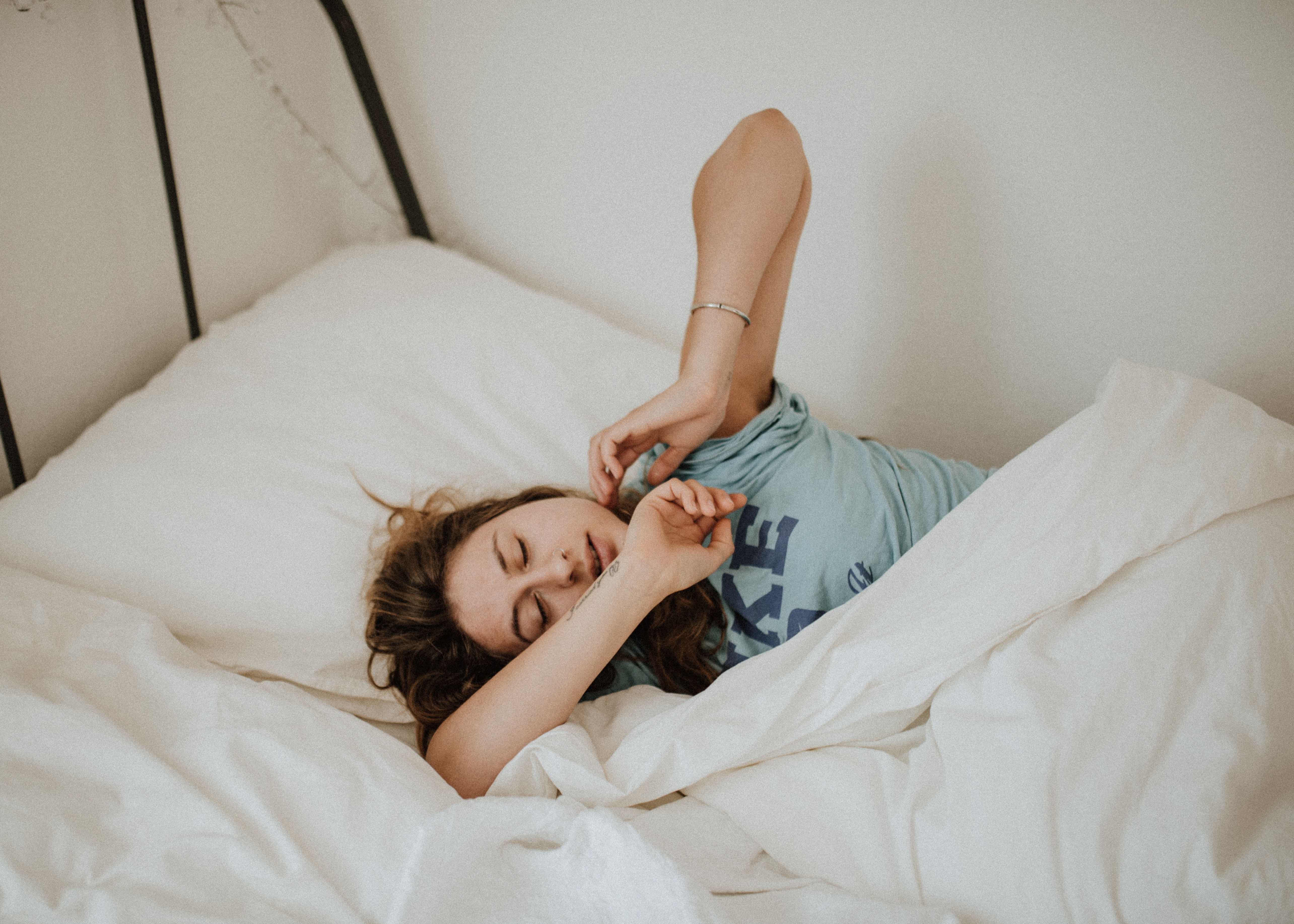28 Aug Sleep – Our Mind and Body’s Recharging Station
Recent research is making it more clear how important it is to get the right amount of sleep that we need. The National Sleep Foundation (www.sleepfoundation.org) estimates that 60% of adults do not sleep well at all and the average adult only gets about six hours sleep each night.
 Photo by Kinga Cichewicz on Unsplash
Photo by Kinga Cichewicz on Unsplash
All day long, the cells in our bodies produce waste that must be eliminated. While we sleep, our brains accumulate the cast-off waste and perform a neuro-toxin dump of everything we have accumulated during the day that our bodies no longer need. Our brains thrive on a consistent sleep schedule, so constant interruptions, floating work schedules, shift work, ‘burning the candle at both ends,’ and over indulgence in alcohol can all contribute to sleep deprivation. If you are overweight, research shows you are more likely to experience poor sleep quality, which can influence the production of hormones, loss of appetite, and daytime sleepiness, which can lessen your desire for physical activity.
Sleep seems to be one of the most underrated gifts we are able to enjoy but don’t often make the choice to do so…for whatever reason. Sometimes depression will take us into a sleep slump and it is a good way to avoid having to make decisions. Or, sometimes we just need to give our bodies the rest that they require while we have been trying to operate on 4-5 hours of sleep each night. I can’t tell you how many clients have said that they can get by on minimal sleep and then wonder why they are having some type of mental health crisis. Without a proper amount of sleep, we are not fully preparing ourselves to handle any degree of stress without the risk of damaging our physical health too.
We all have different natural circadian rhythms that dictate our need for sleep and the patterns that work best for us. For the majority of adults, eight hours seems to be the norm. For some, it’s cat naps in the afternoon, or snoozing whenever we can. We could learn a lot from the cultures that encourage afternoon siestas.
Research has shown that our circadian rhythms dip right after lunch between 1pm and 3pm, which is the recommended best time for a nap. Of course, this assumes a fairly regular schedule of work and mealtimes. The suggested amount of time for a nap is no more than twenty minutes. Anything longer tends to disrupt your nighttime sleep quality. It is also recommended to avoid using caffeine as a crutch to jump start your afternoon. I know it is not possible for everyone to take a nap as they might wish, but this is about improving the quality of your sleep cycle and anything you can do it for your benefit.
I had a client who drank 6-8 cans of Jolt everyday just to keep going in his sales job. As you might guess, he was manic in his conversations and always felt out-of-control in his ability to handle stress. It took some time, but shifting his perspective to the value of proper sleep, regular exercise through yoga, and even beginning meditation helped to get him off his high caffeine habit.
For more detailed help on creating quality sleep, Click to get your personal copy of The One Minute Therapist at Amazon!



No Comments